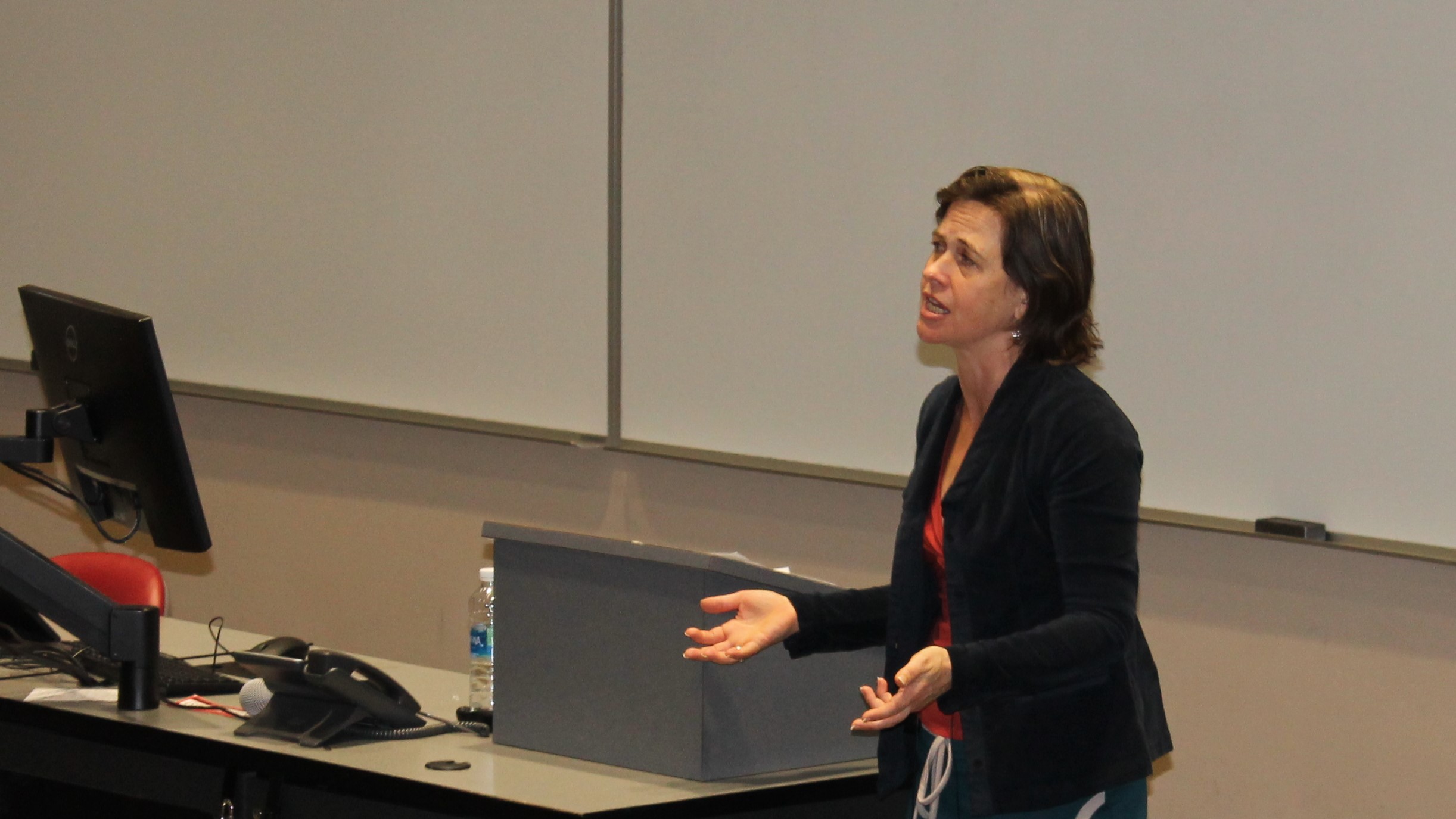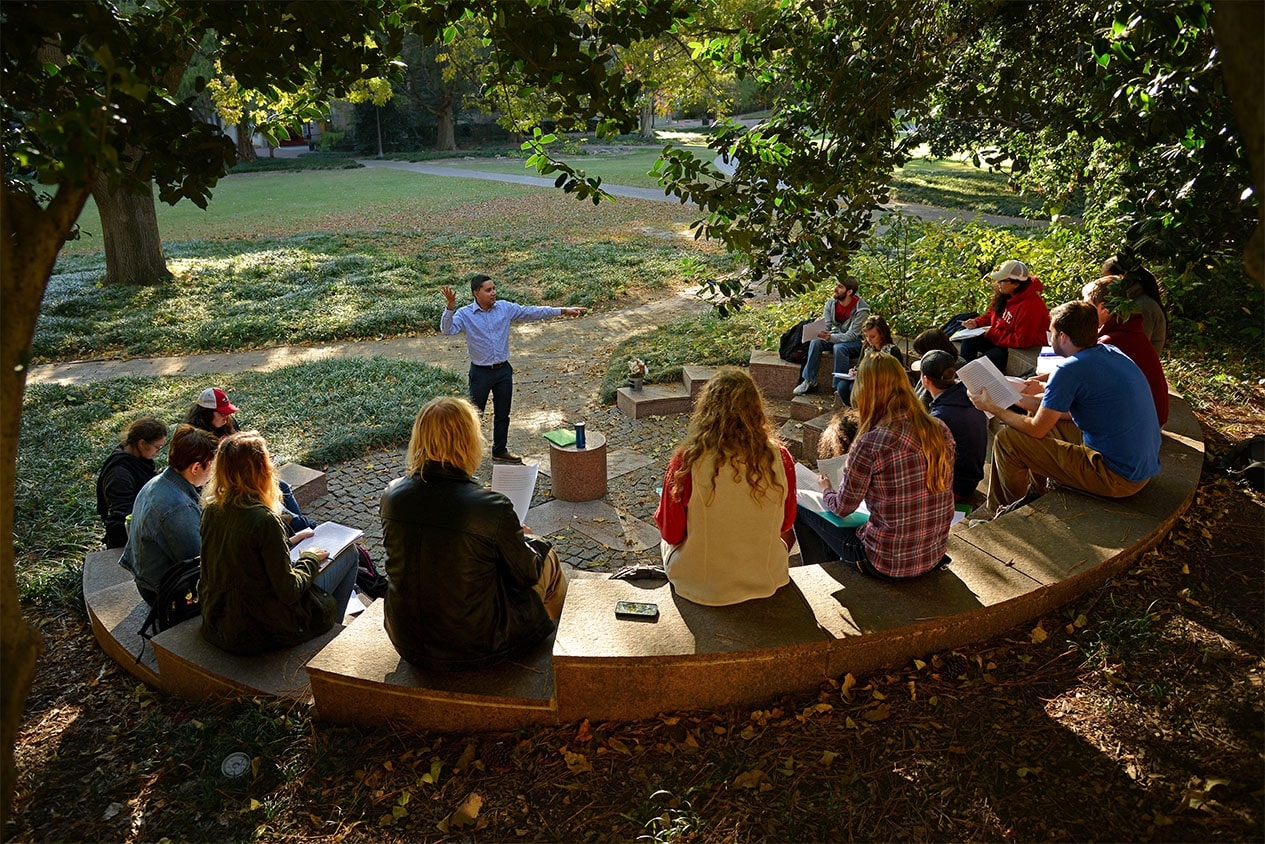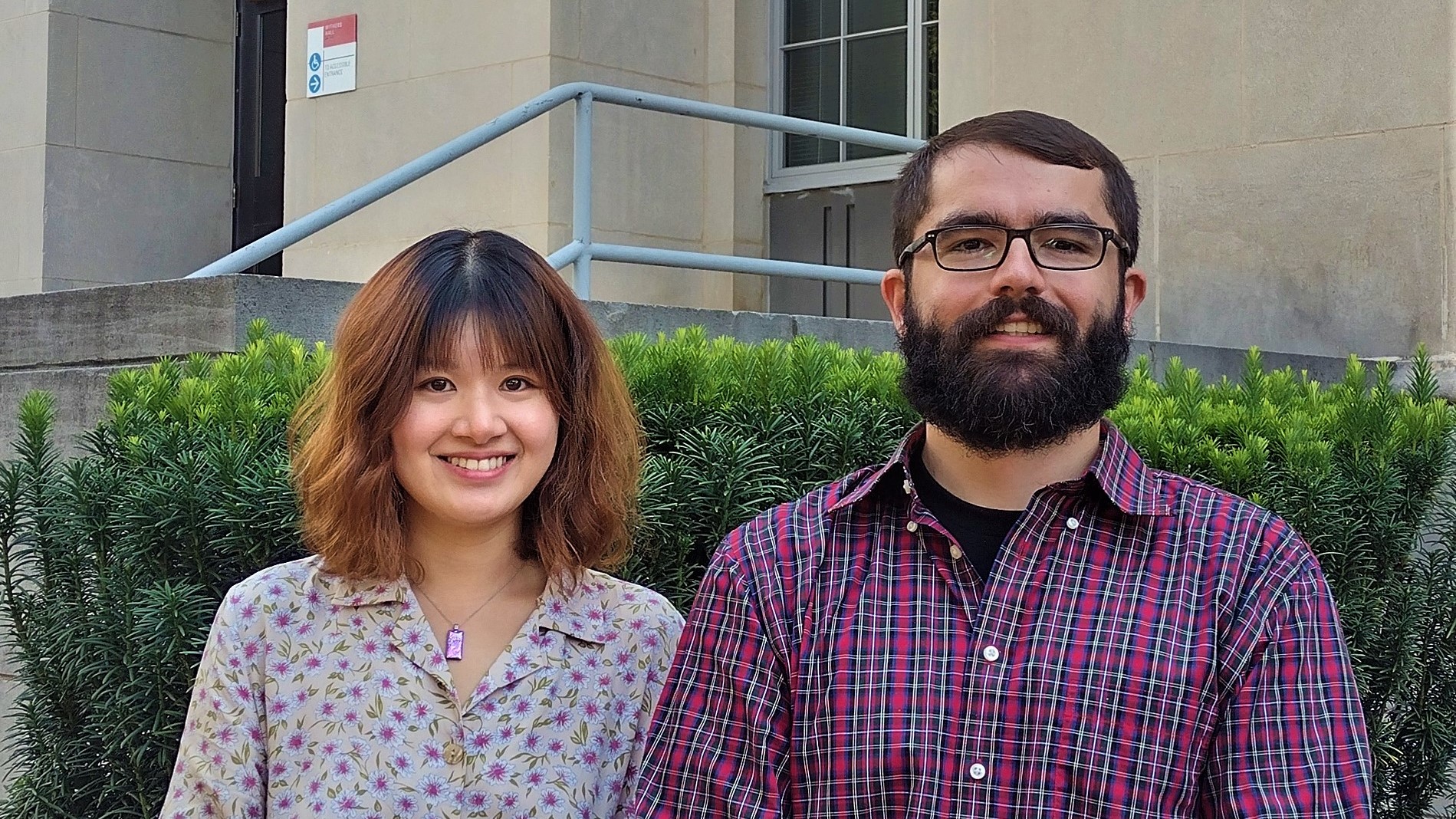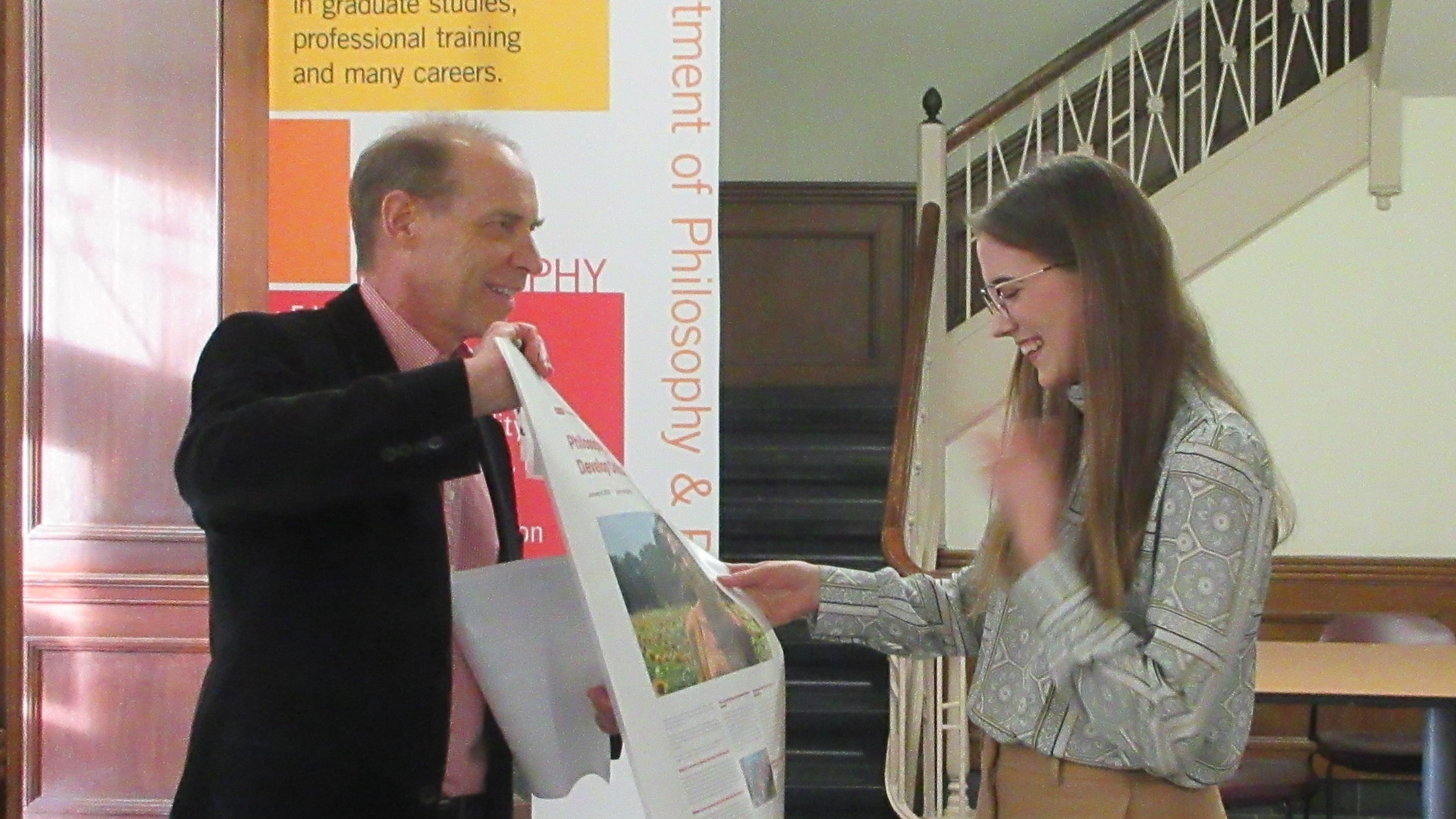Camp Gives World Philosophy Day Lecture

A large audience attended NC State University’s seventh World Philosophy Day Lecture on the afternoon of Friday, November 17, 2023 in the Withers Hall auditorium (room 232-A). The speaker was Elisabeth Camp, Professor of Philosophy at Rutgers University, whose title was “Stories and Selves: A Twisted Love Story about the Meaning of Life.”
World Philosophy Day has been celebrated internationally on the third Thursday of November since 2002. It was officially proclaimed by UNICEF in 2005 to celebrate and advance philosophy as “a discipline that encourages critical and independent thought … capable of working towards a better understanding of the world and promoting tolerance and peace.”
Grace Gould, president of the NC State philosophy club, introduced Camp, who specializes in philosophy of language, philosophy of mind and aesthetics. Camp’s research focuses on thought and talk that does not fit standard propositional models designed for literal thoughts and utterances. She is especially interested in metaphor and other forms of figurative speech; in slurs and other forms of “loaded” language; in cognitive perspectives and emotions; and in non-sentential representational systems such as maps and diagrams.

In her lecture, Camp began by observing that story-telling is pervasive in human interaction and by identifying two crucially important functions that stories serve. One is that they help to prepare us for action by serving as “part of our armamentarium for coping with surprise” (Jerome Bruner). The other is that they provide “configurational comprehension” (Louis Mink) by binding together a complex manifold into a comprehensible unity. Stories can perform these functions, Camp argued, because they parse, select, connect, and evaluate events in an intuitive temporal, teleological (or goal-oriented) structure.
Such considerations may appear to support the narrative account of the unity of the self. This account is advocated by Alasdair MacIntyre in After Virtue (Duckworth 1984), in which he claims that “The unity of an individual life is the unity of a narrative embodied in a single life” and that “The only criteria for success or failure in a human life as a whole are the criteria for the success or failure in a narrated or to-be-narrated quest.” (p.203). The central thesis of Camp’s lecture was that this account is inadequate.
Camp reviewed several challenges faced by the narrative account of the self. These include the fact that it cannot accommodate those who live stable, episodic lives and cannot see themselves as “Agents of Destiny,” or those with amnesia, who cannot construct a unifying narrative of their whole life; also, a narrative of a life might be a projection onto that life rather than rather than an accurate account of it; and finally that “Life must be understood backwards but lived forwards” (Kierkegaard). Next, Camp focused on a problem arising from the idea of the telos (or overarching goal) of a life, which is central to the narrative account, namely that the account forecloses possible alternatives to a fixed and final goal. Part of the difficulty is that in a life-narrative the telos emerges fully only “on the far side of death” (Peter Brooks), when the protagonist cannot be the author. It follows that some people cannot account for the unity of their lives and selves in narrative terms unless they consider themselves to have a destiny that is determined by an external author.
Nevertheless, Camp argued that we can achieve the sort of configurational comprehension that stories offer while side-stepping some of narrative’s risks by employing other species of frames, such as telling details and metaphors.
- Categories:


